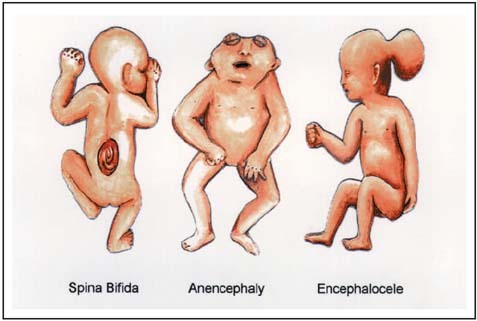Research shows that folic acid benefits both men and women. Is essential for healthy male fertility and helps to protect babies from birth defects during pregnancy.
Folic acid, also known as folate or vitamin B9, belongs to the B group of vitamins. It is a water soluble vitamin and must be sourced from diet.
The body is unable to store folic acid and needs a consistent supply to meet its needs.
The availability of folic acid has important implications for fertility and fetal development. The production of nucleic acid relies on the availability of folic acid. Nucleic acid is an essential component of RNA (ribonucleic acid) and DNA (deoxyribonucleic acid) and in constant demand for the ongoing cell division processes in our bodies.
www.amitamin.com/en/fertilsan-m New life deserves the best possible start!We provide the essential building blocks for this.
Deficiencies in folic acid can therefore lead to genetic mutations in sperm cells as well as embryos.

Clinical Study: Folic acid may affect sperm density and count
A 2001 study involving smoking and non-smoking males investigated the relationship between folate and sperm parameters. Wallock and colleagues analysed blood and semen samples from 24 non-smokers and 24 smokers[1]“Wallock L. et.al. (2001). Low seminal plasma folate concentrations are associated with low sperm density and count in male smokers and non-smokers. Fertility and Sterility, Volume 75, (pp. … Continue reading. They measured plasma levels of homocysteine and folic acid within blood and semen as well as total sperm density and count.
Results
The study found that
- Total plasma folate concentrations within semen were on average 1.5 times higher than in blood plasma across all participants. This suggests that folic acid is needed in high concentration within semen plasma.
- Male smokers had lower seminal plasma folate concentrations than non-smokers.
- Males with higher concentrations of seminal plasma folate also had a higher sperm count and density.
These results are consistent with other studies that show cigarette smoking significantly decreases folate availability[2]“Gabriel, H. et.al. (2006). Chronic cigarette smoking is associated with diminished folate status, altered folate form distribution, and increased genetic damage in the buccal mucosa of healthy … Continue reading. The importance of folic acid for development and maintenance of new cells may explain why low sperm count and density are associated reduced seminal plasma folate levels.
Clinical Study: Reducing semen aneuploidy with folic acid
Aneuploidy (chromosome abnormalities[3]”https://www.ncbi.nlm.nih.gov/pubmed/12735865″) occurs when chromosome numbers are uneven. This leads to a missing or extra chromosome. Aneuploidy is a common cause of genetic disorders. It can lead to birth defects and has also been linked to certain cancers.
A 2007 study investigated the effects of zinc, folate, and antioxidants (vitamin E, C and B-carotene) on the prevalence of aneuploidy in human sperm[4]“Young, S. et.al (2007). The association of folate, zinc and antioxidant intake with sperm aneuploidy in healthy non-smoking men. Human Reproduction, Volume 23, Issue 5, (pp. 1014-1022).”. Samples of sperm from 89 non-smoking, healthy men were analysed for aneuploidy. Daily intake of vitamin C, vitamin E, B-carotene, zinc, and folate was determined using food frequency questionnaires. Covariates were accounted for in the analysis.
Results
The study found that
- Men with a high folate intake had less sperm chromosome abnormalities compared with men with lower folate intake.
- There were no links identified between zinc or antioxidant intakes and sperm aneuploidy.
The critical role folic acid plays in producing nucleic acid may account for these results. Low levels of folate limit the body’s ability to synthesize RNA and DNA. This can cause genetic misplacement and affect sperm development. As it takes three months for sperm to fully mature, any severe folic acid deficiency will negatively impact sperm development.
Clinical Study: Improving male fertility with folic acid supplementation
In the Netherlands, Wong and colleagues assessed the application of folic acid and zinc sulphate on sperm parameters[5]“Wong, W. et.al. (2002). Effects of folic acid and zinc sulfate on male factor subfertility: a double-blind, randomized, placebo-controlled trial. Fertility and Sterility, Volume 77, Issue 3, (pp. … Continue reading. This double-blind, placebo-controlled interventional study was carried out over 26 weeks. It involved 108 fertile men and 103 subfertile men.
Participants were randomly given either folic acid and a placebo, zinc sulphate and a placebo, folic acid and zinc sulphate, or two placebos. The daily dose of zinc sulphate was 66mg, and the daily dose of folic acid was 5 mg (5,000 μg). Semen analysis was performed before supplementation and at the end of the study.
Results
The study found that
- There was a 74% increase in normal sperm in subfertile men after the combined folic acid and zinc sulphate.
- Fertile men also showed an improvement in normal sperm count with combined zinc sulphate and folic acid supplementation.
This study suggests that in order to support a healthy sperm count sufficient folic acid is necessary. Folic acid supplementation together with other trace elements, such as zinc, may help to improve fertility.
Folic acid and pregnancy

To support the healthy development of a foetus folic acid is very important. Folate is needed to support cell division and growth. It’s also essential for synthesising DNA and RNA, plus developing healthy red blood cells.
Insufficient folic acid concentrations are linked to brain, spinal cord, and neural tube defects. Many of these problems develop before a woman realises she is pregnant. This is why it’s essential to increase folic acid intake before she is trying to get pregnant.
In the UK, the scientific Advisory Committee on Nutrition recommends that women planning to conceive consume 400 µg of folic acid daily and should continue taking the vitamin throughout the first trimester. Women with a history of pregnancies affected by birth defects are advised to take 5 mg daily prior to conception and throughout the first 12 weeks of pregnancy. This can help to reduce the risks of neural tube defects by up to 75%[6]“Holmes, L. et.al. (1997). Teratology Society Consensus Statement on Use of Folic Acid to Reduce the Risk of Birth Defects. Teratology, Volume 55 381 (1997).”.
Foods rich in folic acid
Good sources of folic acid include eggs, lentils, lettuce, milk, peas, asparagus, baker’s yeast, broccoli, whole wheat bread, spinach, oranges, brussel sprouts, cabbage, cauliflower, and kidneys.
Low folate intake is widespread and affects approximately 85% of the population. Some countries like the United States and Sweden therefore allow additional folate enrichment (“fortification”) of common foods such as dairy, flour and eggs.
Summary
Both men and women need folic acid to support healthy fertility. Folic acid is important for male fertility as it promotes healthy sperm count, concentration, morphology, and motility. Studies show that genetic defects in sperm can be reduced through regular folic acid supplementation.
For aspiring mothers folic acid is essential to prevent spinal cord, brain, and neural tube defects in their developing babies. Women should take a quality folic acid supplement prior to trying to conceive. Folic acid supplementation should continue for at least the first three months of pregnancy.
Using folic acid to improve male fertility

Folic acid is a powerful male fertility enhancing nutrient, but it is also just one of several so called fertility-neutraceuticals. While it positively affects overall fertility, it does not protect the sperm cells from oxidative damage.
Clinical research studies have consistently shown that
We have therefore compared 18 male fertility combination supplements in a transparent, side-by-side evaluation.
VIDEO: How to improve sperm naturally with food
More sperm-enhancing nutrients
Bibliography

Dr. Kooner is Deputy Director of The Advanced Fertility Center of Chicago and has been a Specialist in Fertility Treatment since 1999.
As well as the areas that the clinic specialises in general, he is particularly interested in managing oocyte donation, female same-sex couples, single women having sperm donation and those considering egg freezing.
Dr. Kooner regularly speaks at fertility meetings. He has published in national journals and constantly contributes to the fertility research and publications from Advanced Fertility Center of Chicago.
References
| ↑1 | “Wallock L. et.al. (2001). Low seminal plasma folate concentrations are associated with low sperm density and count in male smokers and non-smokers. Fertility and Sterility, Volume 75, (pp. 252-9).” |
|---|---|
| ↑2 | “Gabriel, H. et.al. (2006). Chronic cigarette smoking is associated with diminished folate status, altered folate form distribution, and increased genetic damage in the buccal mucosa of healthy adults. The American Journal of Clinical Nutrition, Volume 83, Issue 4, (pp. 263).” |
| ↑3 | ”https://www.ncbi.nlm.nih.gov/pubmed/12735865″ |
| ↑4 | “Young, S. et.al (2007). The association of folate, zinc and antioxidant intake with sperm aneuploidy in healthy non-smoking men. Human Reproduction, Volume 23, Issue 5, (pp. 1014-1022).” |
| ↑5 | “Wong, W. et.al. (2002). Effects of folic acid and zinc sulfate on male factor subfertility: a double-blind, randomized, placebo-controlled trial. Fertility and Sterility, Volume 77, Issue 3, (pp. 491-8).” |
| ↑6 | “Holmes, L. et.al. (1997). Teratology Society Consensus Statement on Use of Folic Acid to Reduce the Risk of Birth Defects. Teratology, Volume 55 381 (1997).” |
| ↑7 | ”https://humupd.oxfordjournals.org/content/14/3/243.full” |
| ↑8 | ”Imhof, Martin et al., “Improvement of sperm quality after micronutritient supplementation” |













